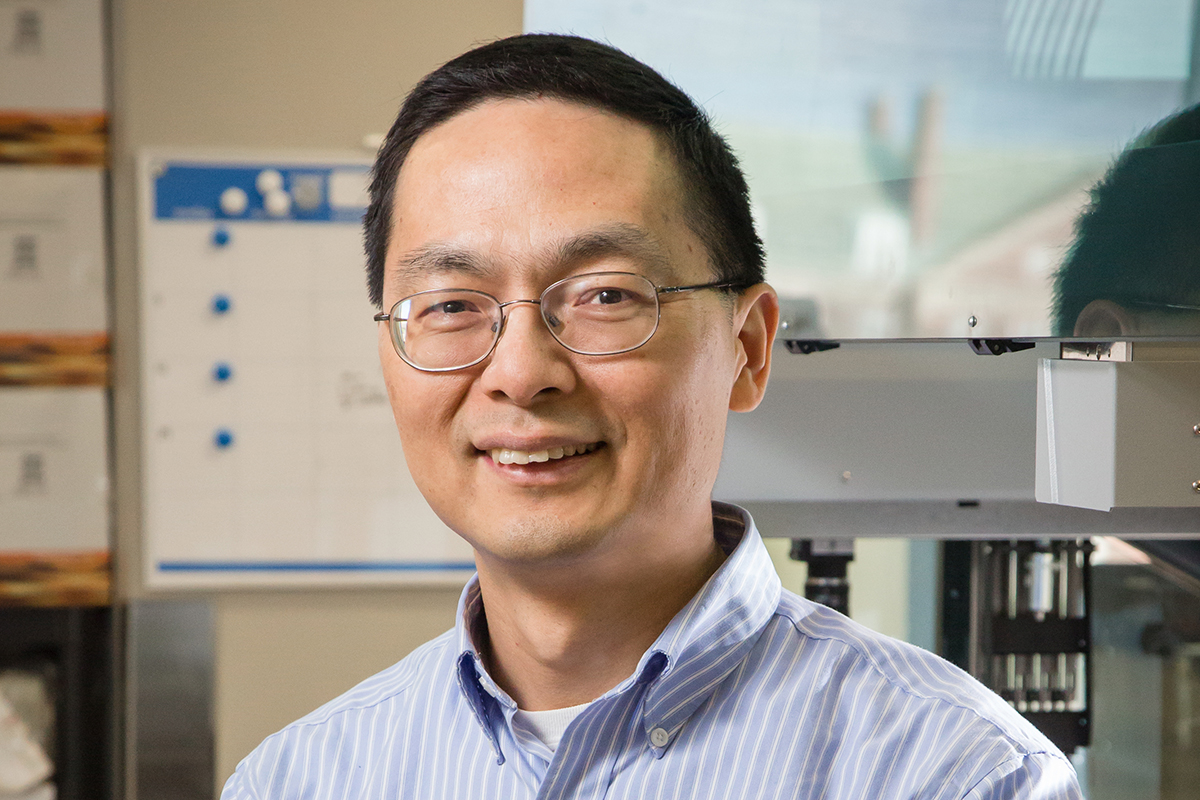
Illinois researchers achieved the highest reported rates of inserting genes into human cells with the CRISPR-Cas9 gene-editing system, a necessary step for harnessing CRISPR for clinical gene-therapy applications.
By chemically tweaking the ends of the DNA to be inserted, the new technique is up to five times more efficient than current approaches. The researchers saw improvements at various genetic locations tested in a human kidney cell line, even seeing 65% insertion at one site where the previous high had been 15%.
The research, led by chemical and biomolecular engineering professor Huimin Zhao, was published in the journal Nature Chemical Biology. Zhao also leads a research theme specifically focused on synthetic biology at the Carl R. Woese Institute for Genomic Biology.
